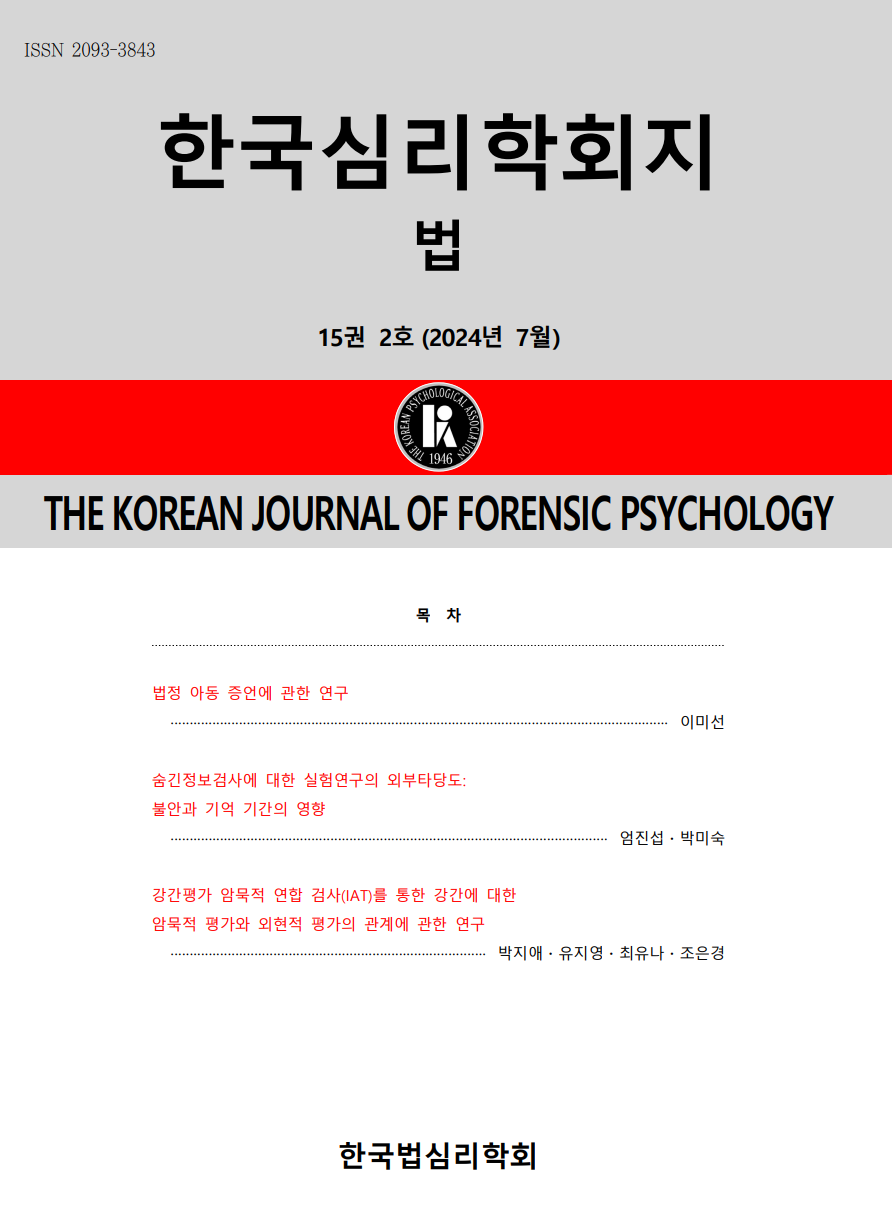open access
메뉴
open access
메뉴 ISSN : 2093-3843
ISSN : 2093-3843
This study tested the effect of the verdict category of lay-participation trial in Korea on the legal decision of layperson and the role of representation of ‘innocent’ in the process. Representation of ‘innocent’ refers to a psychological threshold for deciding someone’s innocence (no fault or sin) in a general sense. The functions as a threshold for a legal decision of ‘beyond a reasonable doubt (BRD)’ and the individual threshold (IT), regarded as a standard for judgment of guilt established by law and an estimate of an individual’s threshold, respectively, were compared. This study used a 2×2 complete factorial design in which the verdict category (guilty/innocent vs. guilty/not guilty) and the defendant’s likelihood of guilt (low vs. high) were manipulated. Data from 137 lay-people who voluntarily participated in the online experiment was analyzed. The experiment’s procedure was in the order of measuring ‘representation of innocent’ and the likelihood of guilt of an accused, presenting one of four trial vignettes, and obtaining legal decisions (verdict confidence and estimation of the likelihood of guilt for the defendant). As a result, it was found that the verdict category did not significantly affect the legal decision of layperson. However, the guilty verdict rate of the ‘guilty/innocent’ condition tended to be higher than those of the ‘guilty/not guilty’ condition. The layperson’s representation of ‘innocent’ and the verdict category had an interaction effect on the difference between BRD and IT (threshold change) at the significance level of .1. In the ‘guilty/innocent’ condition, the threshold change varying with layperson’s representation of ‘innocent’ was larger than in the ‘guilty/not guilty’ condition. In comparing the function of BRD and IT, IT significantly predicted the lay person’s legal decision at the significance level of .1 by interacting with the likelihood of guilt for the defendant. Therefore, it could be said that IT was a better threshold estimator than BRD. The implication of this study is that it provided experimental evidence for the effect of the verdict category of lay-participation trial in Korea, which is a problem often raised among lawyers, and suggested logical reasoning and empirical grounds for the psychological mechanism of the possible effect.